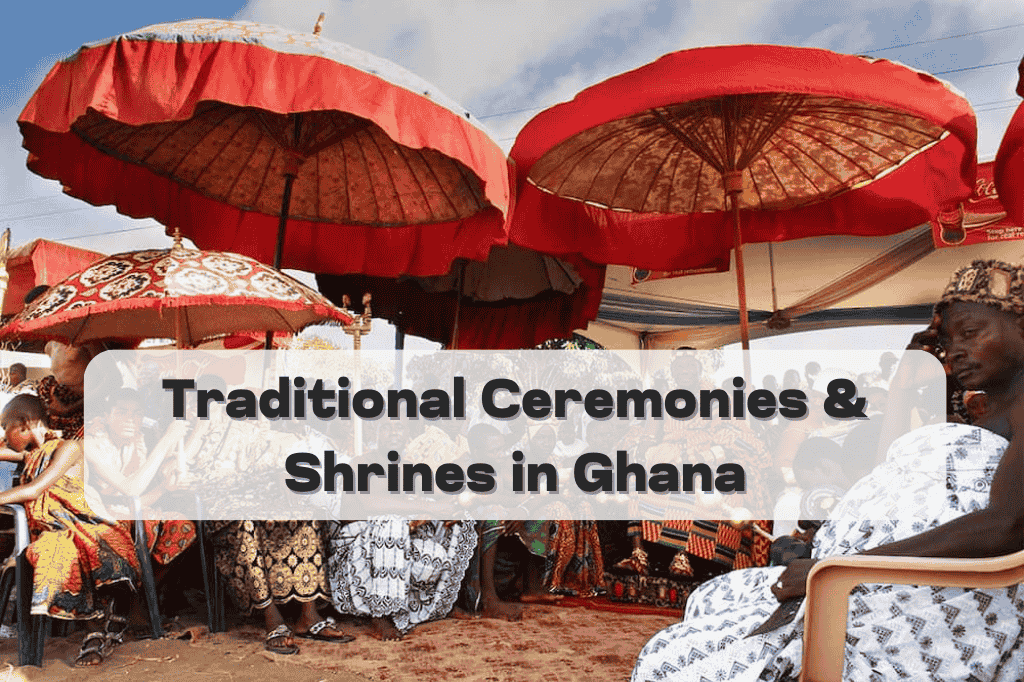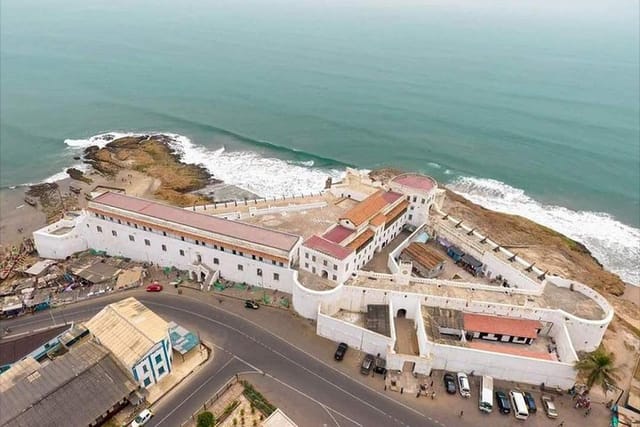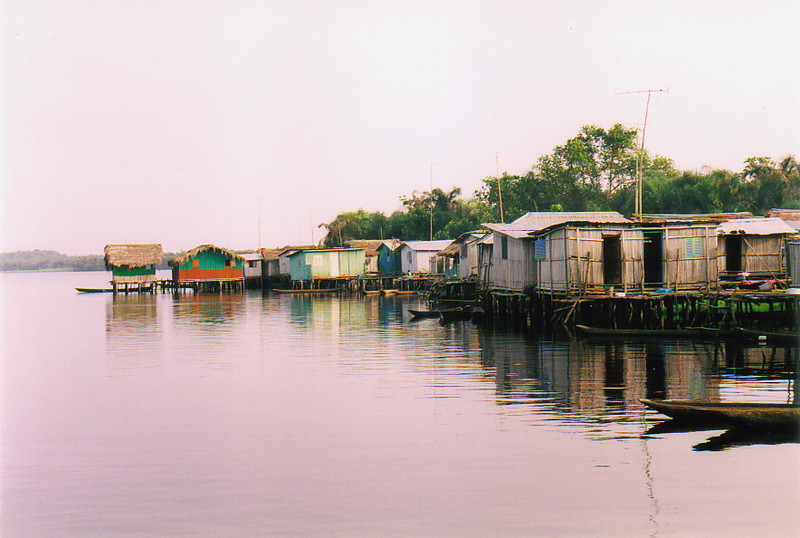Ghanaian culture is rich with traditions, ceremonies, cultural events, as well as religious acts and shrines. All celebrations are intended to recognize a significant life event. Modern Ghana continues to incorporate rich cultural practices into every significant life event, from the moment a baby takes their first breath to the final goodbye of a loved one.
Interested in experiencing these authentic traditions in Ghana? With Akwaaba, you can learn about rich cultural practices in Ghana, attend local ceremonies, and visit sacred sites all over the nation. Let’s explore the traditions that make Ghana a truly unique country.
The Importance of Ceremony in Modern Ghana
Ghana embraces modernization, but traditional ceremonies remain vital to maintaining cultural identity and social bonds. As these rituals mark important life transitions, they strengthen community ties and transmit values to future generations.
Tourism and craft industries contribute to the local economy beyond their cultural significance. Using the Akwaaba app, visitors can plan to experience these traditions while ensuring local communities benefit from cultural tourism.
List Of Traditional Ceremonies in Ghana
Naming ceremony
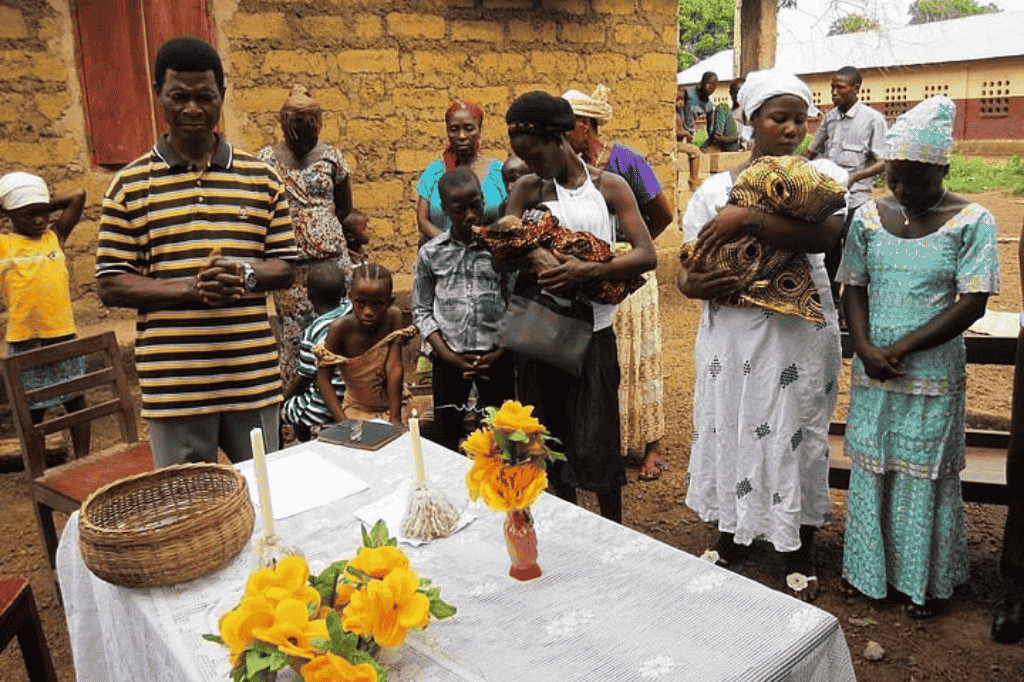
A naming ceremony in Ghana is an occasion for naming a child – in this case, a newborn. Every Ghanaian believes that children are gifts from God, and they are a true blessing in their lives. Children are given various names at birth, including their maiden names and day names that indicate what day of the week they were born.
Libation
Libation refers to pouring a liquid in honour of a deceased person’s spirit, deity, or soul, which is one of the oldest forms of prayer. In Ghanaian traditions, it can occur during social gatherings or big milestone events.
In Ghanaian culture and tradition, ancestors (along with gods and God) participate in libation ceremonies. Elders perform the ritual by pouring palm wine or another alcoholic beverage. A mixture of corn flour and water is also used in places like the Volta Region. Libations are also offered at traditional Ghanaian festivals like Asafotu and Homowo, at traditional marriages, when a child is born, and at funerals.
Durbar of Chiefs
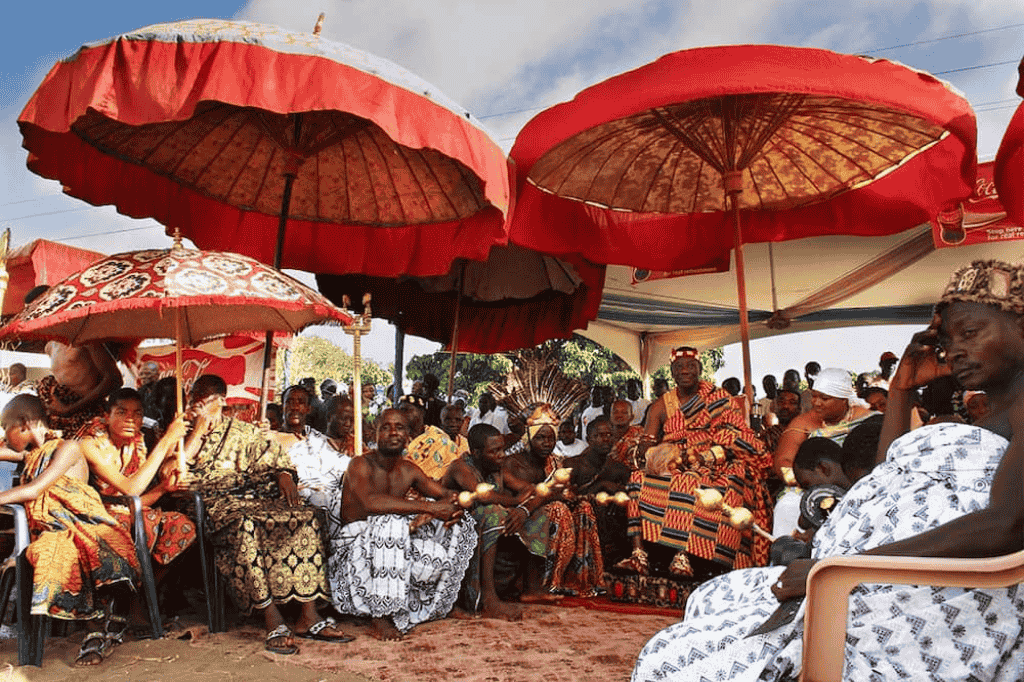
Every community in Accra is led by a chief, who serves both as historian and territorial leader, capable of providing both historical knowledge and intimate knowledge of the area. This magnificent ceremony is filled with drumming, dancing, and holy rituals, including libations, blessings, and drumming to showcase the traditional leaders in their court.
Door of Return
From the time of slavery, the Door of Return symbolized the point of no return for enslaved Africans, who were forced to leave their homeland. In today’s world, it serves as a powerful symbol of homecoming for African Diaspora members, offering a deeply moving ceremony that celebrates their return to their ancestral homelands. During this ritual, participants offer prayers to their ancestors who originally passed through the door. The Year of Return initiative gave particular prominence to this ceremony.
Sacred Spaces and Shrines in Ghana
Each shrine and sacred space on Ghana’s landscape serves as a testament to the nation’s spiritual heritage. They honour ancestors, deities, historical events, and aspects of daily life, forming an integral part of Ghanaian culture.
Posuban Shrines
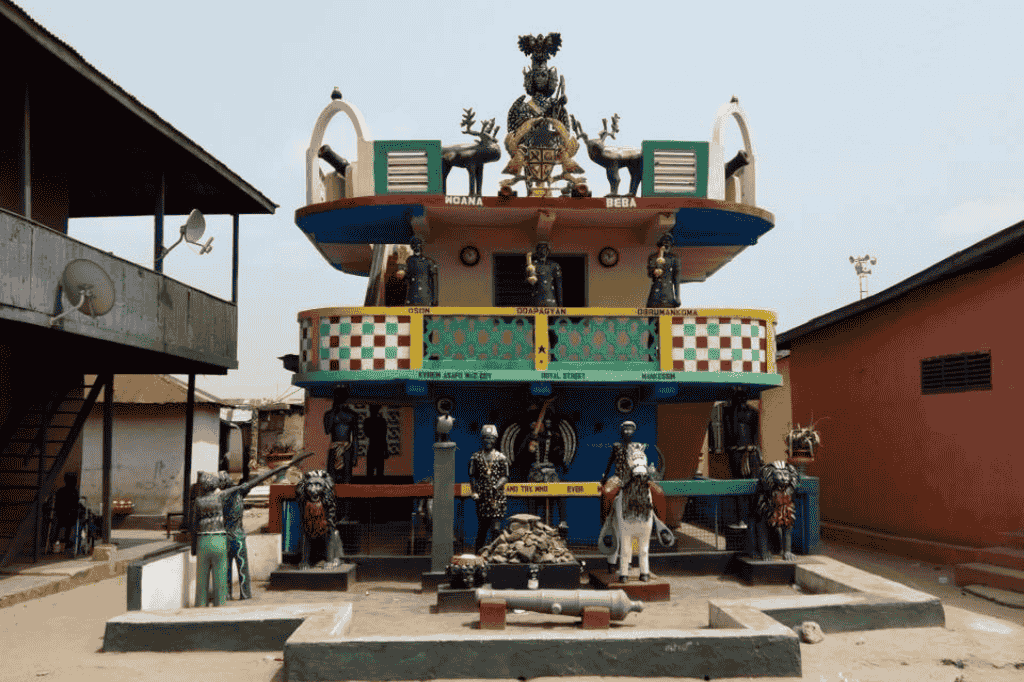
Posuban shrines are unique cultural landmarks in coastal regions inhabited by the Fante people. There are numerous shrines in Cape Coast, ranging from simple structures, such as the iconic Posuban crab, to elaborate concrete edifices adorned with life-size figures and mythical creatures. Some shrines are meticulously maintained, with fresh paint and regular maintenance, while others show signs of ageing. Even so, each shrine provides fascinating insights into Fante culture and spirituality.
In the past, these were the posts used by tribal militias or Asafo companies. Asafo shrines and festivals continue to be maintained by a social and political organization that no longer serves as a military unit.
Ashanti Shrines
Ashanti traditional architecture can only be found in the dozen surviving buildings. All of these buildings are near Kumasi and have been designated as World Heritage Sites. Roofs are thatched with lower walls painted earth colour and upper walls whitewashed. Like the Adinkra cloth, the walls are decorated with symbolic murals.
A central courtyard surrounds four rooms in the buildings. Drums, singing, and household activities take place in three of the open rooms. Closed rooms are actual shrines that are usually only accessible to priests priestesses, and their assistants.
Ancestral Altars & Shrines
Ghanaians often recognize the spirit of their ancestors. Family members who have passed into the spirit world will be offered offerings. You can always rely on their guidance and protection. For this reason, elaborate funerals are so important for the dead’s spirits. It will be a tradition to hold large celebrations on the first, fifth, and tenth anniversaries of the death of ancestors, as well.
Sacred Spaces of the Gods
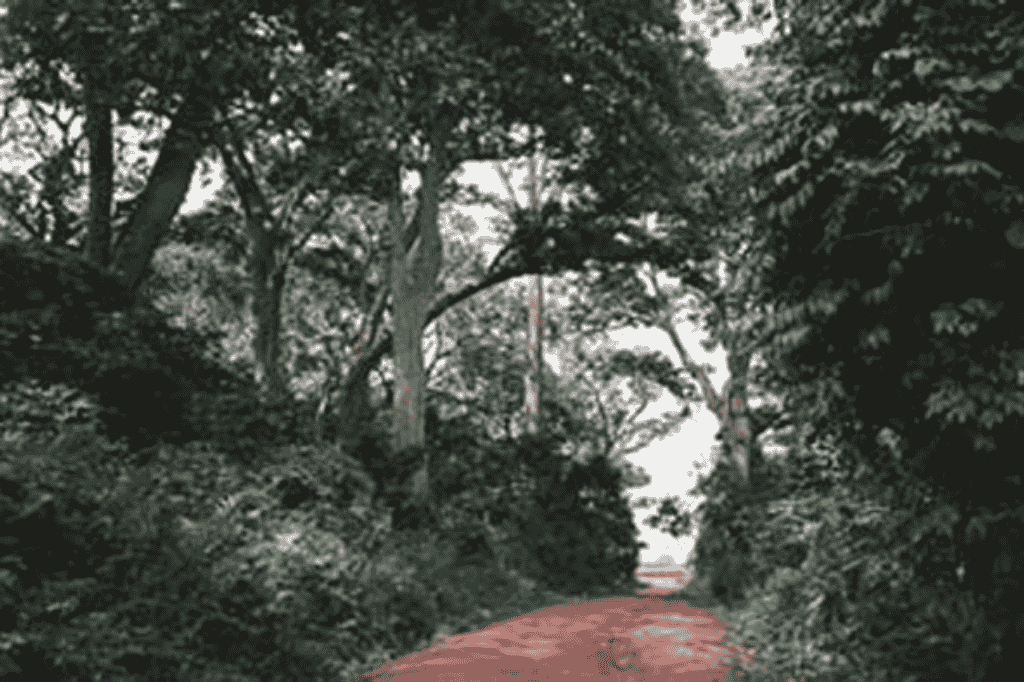
Ghana has many traditional gods living alongside Christian and Muslim religions. Oftentimes, the worship places display icons representing the world’s great religions in Ghana. The sacred spaces of these traditional gods can be found all over Ghana. A shrine’s structure can range from simple creations to elaborate structures to natural objects such as stones, forest groves, or fallen trees. All must be treated equally and with respect.
Traditionally, everything around you is believed to have a spirit. All things around you have a spirit, including the stone, the wind, the thunder, the river, the trees, and everything else. Gifts are given in these spaces to request a favour or for protection. Some shrines cover their gods with a cloth at night and wake them up in the morning with gongs, bells, chants, and/or prayers.
Churches and Mosques
About 60% of Ghana’s population is Christian, mostly in the south. There are numerous churches, cathedrals, and other places of Christian worship in Ghana. Accra, Kumasi, Ho, and other major cities, as well as Navrongo, in the far north, all have beautiful churches. Some places have particularly elaborate Catholic and Methodist churches.
In Ghana, Islam is the second most popular religion. The majority of Ghanaian Muslims live in the north of the country. Every town or city in Ghana has a mosque. It is quite amazing to see ancient mosques in the north. Practicing Muslims are always welcome for prayers. If you prefer, you can take a tour with the imam or a caretaker.
Ghana is one of only a few countries with Muslim and Christian populations living together harmoniously. Muslim and Christian holidays are both celebrated by people of all faiths as national holidays.
Final Thoughts:
Ghana’s traditional ceremonies and shrines are more than just cultural practices; they’re living links connecting past, present, and future generations. Platforms such as the Akwaaba app help visitors gain knowledge about the sacred essence of these precious traditions for a wider audience.
Are you ready to discover the magic of Ghana traditions? Get Akwaaba today and discover one of Africa’s most remarkable cultural landscapes.
Frequently Asked Questions (FAQs):
What is a traditional ceremony?
A traditional ceremony in Ghana is an event that has social, spiritual, religious, or public significance and is held on special occasions.
What is the traditional naming ceremony in Ghana?
The traditional naming ceremony for infants in Ghana is called an Outdooring. Traditionally, this ceremony occurs eight days after a child is born, when parents bring their newborn “outdoors” for a naming ceremony.
What is the primary purpose of the ceremony?
Individuals usually perform ceremonies to mark rites of passage like births, baptisms, graduations, marriages, anniversaries, retirements, and death. A ceremony may also be performed to mark an important milestone, such as when a special award is received.
Why are religious ceremonies important?
The rituals provide information regarding the religious beliefs, commitments, and values of the individuals performing the ritual. In this way, they reaffirm the philosophical frameworks individuals use to conceptualize life and to interpret its meaning.
How do Ghanaians worship?
In Ghana, many people recognize the spirit of their ancestors. Offerings and prayers will be made for family members who have passed into the spirit world. You are always guided and protected by these ancestors.
What is a God called in Ghana?
Onyame, Nyankopon (Onyankapon), or Odomankoma are the supreme gods of the Akan people of Ghana. The name means “the one who knows everything” and “omniscient, omnipotent sky deity” in the Akan language. It is Nyame who is the Supreme God and the Father of the Sky (Ono nya me).
